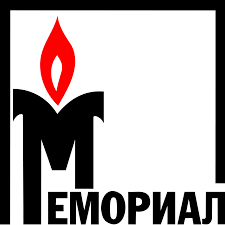A Moscow court abolished the Memorial Human Rights Center on Wednesday in the second ruling in two days against Russia’s most prominent human rights group. Russia’s Supreme Court liquidated another wing of the group, the International Memorial Society, on Tuesday in a decision condemned by global human rights organizations, The Post reports.
The closure appears to confirm that Vladimir Putin has shifted Russia from autocracy to dictatorship, as The Economist observed.
The year in Russia is winding down with a spate of events that have alarmed many observers about the intentions of Putin and his government, RFE/RL’s Robert Coalson adds:
- First, the state media-monitoring agency Roskomnadzor blocked the website of OVD-Info, which among other things has served as a clearinghouse connecting detained protesters with defense attorneys.
- Then, a court in the northern city of Petrozavodsk sentenced prominent historian Yury Dmitriyev to 15 years in prison on indecency charges that supporters say were fabricated in retribution for his research into the crimes of dictator Josef Stalin and the Soviet government.
- Next, the Russian Supreme Court ordered the shutdown of Memorial International, an umbrella human rights and historical research NGO that has played a prominent civil society role since the days of Soviet leader Mikhail Gorbachev’s policy of glasnost, or openness.
- The same day, police in Irkutsk, Tomsk, Arkhangelsk, Barnaul, and Saratov detained and questioned former local coordinators for imprisoned opposition politician Aleksei Navalny.
- One day later, on December 29, the Moscow City Court ordered the closure of the Moscow Memorial Human Rights Center, the flagship project of Memorial International in Russia.
 Longtime liberal politician Grigory Yavlinsky argued that the closure of Memorial International marked “the transition from an authoritarian regime to a totalitarian one.” The decision, he added, shows that Putin’s government “has proclaimed itself the successor of the Stalinist and Soviet regime.”
Longtime liberal politician Grigory Yavlinsky argued that the closure of Memorial International marked “the transition from an authoritarian regime to a totalitarian one.” The decision, he added, shows that Putin’s government “has proclaimed itself the successor of the Stalinist and Soviet regime.”
“By closing down the organization, Russian authorities trample on the memory of millions of victims lost to the Gulag,” said Marie Struthers, Amnesty International’s Eastern Europe and Central Asia Director. “The decision to shut down International Memorial is a grave insult to victims of the Russian Gulag and must be immediately overturned.”
Russian opposition politician Sergei Mitrokhin said that Memorial was “the last barrier on the way to complete Stalinization of the society and state,” the Times adds.
Russia’s courts have dealt two excruciating blows to the country’s civil society, the International Federation for Human Rights adds. These political decisions signal the regime’s determination to control the historical narrative of the Soviet past and mark a new milestone of political repression in modern Russia.
“A power that is afraid of memory will never be able to achieve democratic maturity,” Auschwitz-Birkenau State Museum director Piotr Cywiński tweeted on Tuesday.
The correlation between growing autocracy inside Russia and rising Russian tensions with the democratic West is not spurious, Stanford’s Michael McFaul tweeted.
RFE/RL profiles seven Memorial activists whose work displays the breadth, depth, and impact of the organization the state is shutting down – Natalya Estemirova, Oleg Orlov, Sergei Kovalyov, Irina Shcherbakova, Nikita Petrov, Yury Dmitriyev and Arseny Roginsky, a recipient of the National Endowment for Democracy’s 2004 award. Senator John McCain presented Kovalyov and Elena Bonner with the NED award in 1995.
The Faces Of Memorial: Those Who Created It, Helped It To Flourish, And Who Were Working For It Until The End https://t.co/2bplU63SJs
— Democracy Digest (@demdigest) December 29, 2021







